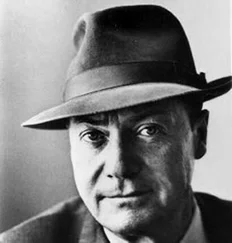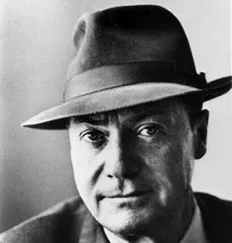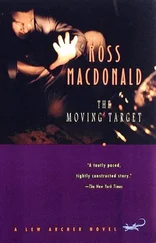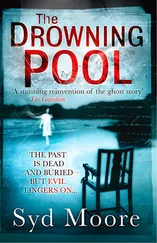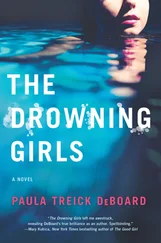Ross Macdonald - The drowning pool
Здесь есть возможность читать онлайн «Ross Macdonald - The drowning pool» весь текст электронной книги совершенно бесплатно (целиком полную версию без сокращений). В некоторых случаях можно слушать аудио, скачать через торрент в формате fb2 и присутствует краткое содержание. Жанр: Крутой детектив, на английском языке. Описание произведения, (предисловие) а так же отзывы посетителей доступны на портале библиотеки ЛибКат.
- Название:The drowning pool
- Автор:
- Жанр:
- Год:неизвестен
- ISBN:нет данных
- Рейтинг книги:5 / 5. Голосов: 1
-
Избранное:Добавить в избранное
- Отзывы:
-
Ваша оценка:
- 100
- 1
- 2
- 3
- 4
- 5
The drowning pool: краткое содержание, описание и аннотация
Предлагаем к чтению аннотацию, описание, краткое содержание или предисловие (зависит от того, что написал сам автор книги «The drowning pool»). Если вы не нашли необходимую информацию о книге — напишите в комментариях, мы постараемся отыскать её.
, Lew Archer takes this case in the L.A. suburbs and encounters a moral wasteland of corporate greed and family hatred—and sufficient motive for a dozen murders.
The drowning pool — читать онлайн бесплатно полную книгу (весь текст) целиком
Ниже представлен текст книги, разбитый по страницам. Система сохранения места последней прочитанной страницы, позволяет с удобством читать онлайн бесплатно книгу «The drowning pool», без необходимости каждый раз заново искать на чём Вы остановились. Поставьте закладку, и сможете в любой момент перейти на страницу, на которой закончили чтение.
Интервал:
Закладка:
“But you don’t really want him at your parties, is that it? I used to be a cop, and I’m still one in a way. I’ve felt that kind of snobbery myself.”
“I’m not a snob!” she said fiercely. Apparently I’d touched something she valued. “My parents were ordinary people, and I’ve always hated snobs. But why I should be defending myself to you!”
“Then let me come in for a drink. I promise to be very suave and smooth.”
“You’re so terribly persistent—as if I didn’t have enough to contend with. What makes you so persistent?”
“Curiosity, I guess. I’m getting interested in the case. It’s quite an interesting setup you’ve got here; I’ve never seen a fishline with more tangles.”
“I suppose you realize I can dismiss you, if you continue to make yourself completely obnoxious.”
“You won’t.”
“And why won’t I?”
“I think you’re expecting trouble. You said yourself that something was building up. I can feel it in the air. And it’s possible your policeman friend didn’t come up here for fun.”
“Don’t be melodramatic. And he isn’t my friend. Frankly, Mr. Archer, I’ve never had to deal with a more difficult—employee, than you.”
I didn’t like the word. “It might help you,” I said, “if you thought of me as an independent contractor. In this case I’m expected to build a house without going near the lot.” Or perhaps demolish a house, but I didn’t add that.
She looked at me steadily for twenty or thirty seconds. Finally a smile touched her generous mouth and parted it. “You know, I think I rather like you, damn it. Very well, come in and meet the wonderful people, and I’ll buy you a drink.”
“You talked me into it.”
I got my drink and lost my hostess in the same motion, as soon as we entered the big living-room. Ralph Knudson, the big man who was no friend of hers, caught her eye as she handed me my glass. She went to him. Her husband and Francis Marvell were sitting on the piano bench with their heads together, leafing through a thick volume of music. I looked around at the rest of the wonderful people. Mrs. Galway, the amateur actress, with the professional smile clicking off and on like a white electric sign. A bald-headed man in white flannels setting off his mahogany tan, who daintily smoked a small brown cigarillo in a long green-gold holder. A fat man with a cropped gray head, in a tweed suit with padded shoulders, who turned out to be a woman when she moved her nyloned legs. A woman leaning awkwardly on the arm of the chair beside her, with a dark long tragic face and an ugly body. A youth who moved gracefully about the room, pouring drinks for everybody and smoothing the receding hair at his temples. A round little woman who tinkled on and on, whose bracelets and earrings tinkled when her voice paused.
I listened to them talk. Existentialism, they said. Henry Miller and Truman Capote and Henry Moore. André Gide and Anais Nin and Djuna Barnes. And sex—hard-boiled, poached, coddled, shirred, and fried easy over in sweet, fresh creamery butter. Sex solo, in duet, trio, quartet; for all-male chorus; for choir and symphony; and played on the harpsichord in three-fourths time. And Albert Schweitzer and the dignity of everything that lives.
The fat man who had been listening to the tinkling woman closed his face against her and became absorbed in his drink. She looked around brightly and gaily like a bird, saw me, and picked up her drink. It was short and green. She sat down on a hassock by my chair, crossed her plump ankles, so that I could see the tininess of her feet, and tinkled:
“I so love crème de menthe; it’s such a pretty drink, and I always drink it when I wear my emeralds.” She bobbed her birdlike head, and the earrings swung. They were the right color, but almost too big to be real.
“I always eat oyster stew when I wear my pearls,” I said.
Her laughter had the same quality as her voice, and was an octave higher. I decided not to make her laugh, if possible.
“You’re Mr. Archer, aren’t you? I’ve heard such interesting things about you. My daughter’s on the stage in New York, you know. Her father’s constantly urging her to come home, because of course it costs him a great deal of money, but I tell him, after all, a girl is only young once. Don’t you agree?”
“Some people manage it twice. If they live long enough.”
I meant it as an insult, but she thought it was funny, and made me the curious gift of her laughter again. “You must have heard of Felice. She dances under the name of Felicia France. Leonard Lyons has mentioned her several times. Mr. Marvell thinks she has dramatic talent, too; he’d love to have her play the ingénue in his play. But Felice has given her heart and soul to the dance. She has a very, very beautiful body, dear child. I had a lovely body myself at one time, really utterly lovely.” Meditatively, she fingered herself, like a butcher testing meat which had hung too long.
I looked away, anywhere, and saw James Slocum standing up by the piano. Marvell struck a few opening chords, and Slocum began to sing, in a thin sweet tenor, the Ballad of Barbara Allen. The trickle of melody gradually filled the room like clear water, and the bubbling chatter subsided. Slocum’s face was untroubled and radiant, a boy tenor’s. Everyone in the room was watching it before the song ended, and he knew it, and wanted it that way. He was Peter Pan, caught out of time. His song had killed the crocodile with the ticking clock in its belly.
“Quite utterly lovely,” the emerald earrings tinkled. “It always reminds me of Scotland for some reason. Edinburgh is really one of my favorite places in the world. What is your favorite place in the whole wide world, Mr. Archer?”
“Ten feet underwater at La Jolla, watching the fish through a face-glass.”
“Are fish so terribly fascinating?”
“They have some pleasant qualities. You don’t have to look at them unless you want to. And they can’t talk.”
Below her bird-brained laughter, and drowning it out, a heavy male voice said clearly: “That was very nice, James. Now why don’t you and Marvell sing a duet?”
It was Ralph Knudson. Most of the eyes in the room shifted to him, and wavered away again. His thick face was bulging with blood and malice. Maude Slocum was standing beside him, facing her husband. Slocum stood where he was, his face as white as snow. Marvell was motionless, his eyes fixed on the keyboard and his back to the room. Short of homicidal violence, the atmosphere around the piano was as ugly as I had ever seen.
Maude Slocum walked through it, moving easily from Knudson to her husband, and touched him on the arm. He drew away from her, and she persisted.
“That would be nice, James,” she said simply and quietly, “if only Francis had a voice like yours. But why don’t you sing by yourself? I’ll accompany you.”
She took Marvell’s place at the bench, and played while her husband sang. Knudson watched them, smiling like a tiger. I felt like going for a long drive by myself.
Chapter 6
The fire in the sky had died, leaving long wisps of clouds like streaks of ashes livid against the night. All I could see of the mountains was their giant shadowed forms shouldering the faintly lighted sky. A few lights sprinkled their flanks, and a car’s headlights inched down into the other side of the valley and were lost in darkness. Then the night was so still that motion seemed impossible, all of us insects caught in the final amber. I moved and broke the spell, feeling my way down the dew-slick terraces beside the flagstone walk.
I closed a contact when I took hold of the left doorhandle of my convertible. The headlights and dashlights came on with a click. My right hand moved by reflex under my coat for a gun that wasn’t there. Then I saw the girl’s hand on the switch, the girl’s face like a ghost’s leaning towards me.
Читать дальшеИнтервал:
Закладка:
Похожие книги на «The drowning pool»
Представляем Вашему вниманию похожие книги на «The drowning pool» списком для выбора. Мы отобрали схожую по названию и смыслу литературу в надежде предоставить читателям больше вариантов отыскать новые, интересные, ещё непрочитанные произведения.
Обсуждение, отзывы о книге «The drowning pool» и просто собственные мнения читателей. Оставьте ваши комментарии, напишите, что Вы думаете о произведении, его смысле или главных героях. Укажите что конкретно понравилось, а что нет, и почему Вы так считаете.





